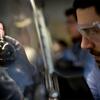ostdoctoral positions in data science, with focus on applied artificial intelligence and machine learning, are available under the supervision of Dr. Subodha Kumar. This position is funded through collaboration with TD Bank.
We are seeking outstanding postdoctoral candidates with a strong interdisciplinary background across information systems and other quantitative business disciplines, economics and game theory, statistics and computer science. The candidate should possess In-depth knowledge of ML/AI algorithms and techniques, such as Gradient Boosting Method, NLP, modern Neural Networks, and time series forecasting, as well as proficiency in coding.
An ideal project would both develop a new quantitative approach and apply it to an important problem related to banking. Potential projects include:
- Develop robust and reliable machine learning algorithms helping to solve strategic business challenges
- Use modern machine learning techniques on structured and unstructured data
- Leverage a broad stack of technologies and platforms— Python, Azure DataBricks, PySpark, and more — to reveal the insights hidden within huge volumes of numeric and textual data
- Conduct R&D on new Machine Learning techniques and their applications.
More details on recent research are available online: Preprints and publications by Prof Subodha Kumar
This joint effort between the Fox School of Business and TD Bank offers a highly energetic environment for working on a wide range of challenging methodological problems in data science, information systems, statistics, and beyond related to banking and finance. We work closely with TD Bank to identify and address problems for which a solution would have a substantial impact in the world. The postdoc will be based at the Fox School of Business. Philadelphia is an exciting place with rich intellectual, cultural and recreational resources. Salary and benefits are competitive.
The ideal candidates should have deep knowledge of one or more areas of data science and ML/AI, and a strong track record of research and development in quantitative methods, with clear interests toward applications in business disciplines, computational social science, or in the computer and information sciences, evidenced by high quality publications; be able to communicate and work with collaborating student/postdocs and external PIs; and be able to carry out research and develop and implement ideas independently. Python programming skills and solid quantitative background are also required. The candidate should possess strong analytical and problem-solving skills are required to interpret data and draw conclusions. Strong written and verbal communication skills and ability to communicate model design and results to an executive audience effectively, is also required. Familiarity with Generative AI advancements and techniques is a plus.
Candidates must submit a curriculum vitae, contact information (phone/email) for three references, a research statement, and 1-3 publications/pre-prints, via email to
Subodha Kumar, Professor
Email: [click-for-email]
We will begin reviewing applications immediately and continue until the position is filled. Review will continue until the position is filled.
Temple University is committed to a policy of equal opportunity for all in every aspect of its operations, including employment, service, and educational programs. The University has pledged not to discriminate on the basis of age, color, disability, marital status, national origin or ethnic origin, race, religion, sex (including pregnancy), sexual orientation, gender identity, genetic information or veteran status.
Posted Sept. 17, 2024


